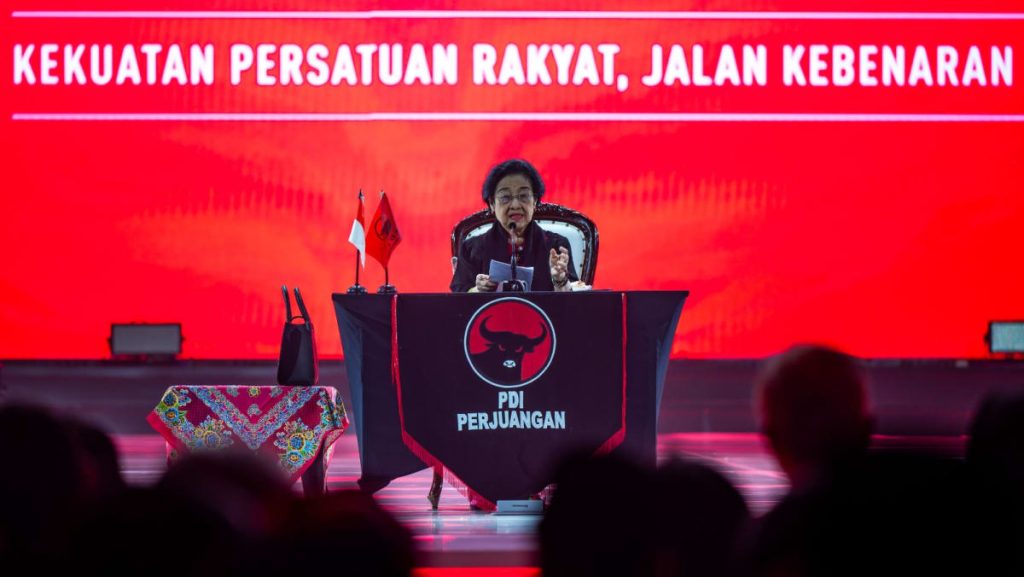Political observers in Indonesia have noted that the Indonesian Democratic Party of Struggle (PDI-P), led by Megawati Sukarnoputri, is showing reluctance to declare itself as part of the opposition in the country. This hesitation may stem from the fact that PDI-P still has members in the existing Cabinet, making a clear declaration of opposition challenging for the party. Analysts believe that the situation may become clearer after the inauguration of President Prabowo Subianto on October 20. Some observers interpret Megawati’s statements as indicating that PDI-P is likely to remain outside the ruling coalition.
During a recent meeting, PDI-P issued a 17-point recommendation, which included criticizing the 2024 election as the worst in Indonesian democracy’s history. The party also hinted that they would only cooperate with other parties committed to implementing reforms, strengthening the rule of law, and improving the quality of democracy in the country. Political analysts suggest that PDI-P is inclined to remain in the opposition, providing checks and balances to the ruling establishment. However, Megawati has refrained from making the party’s stance clear, possibly to avoid revealing their strategies prematurely.
One senior PDI-P figure, Ganjar Pranowo, has openly declared that he will not join the new government under Prabowo’s administration. Despite this statement, it is considered a personal stance rather than an official party position. Observers note that Megawati tends to express her personal views before the party’s official position is announced, adding to the ambiguity surrounding PDI-P’s status as either a part of the opposition or the ruling coalition. This strategy may leave room for informal communication and flexibility in the future.
Political experts believe that if PDI-P chooses to join the opposition, they could potentially be joined by the Prosperous Justice Party (PKS) as the only two parties in the opposition camp. This decision could lead to a more vocal and critical stance by PDI-P towards the government, as historically, parties outside the ruling establishment tend to be more aggressive in their criticisms. While Megawati may personally prefer to remain outside the government, the official position of the party is yet to be confirmed. This ambiguity in PDI-P’s stance reflects the complexities of political strategy and the importance of timing in decision-making within the Indonesian political landscape.
As the political landscape in Indonesia continues to evolve, observers are closely monitoring PDI-P’s positioning within the ruling coalition or the opposition. The party’s insistence on cooperating only with those committed to democratic principles and reforms hints at their potential role as a vigilant opposition force in the country. With several months remaining before the new government’s inauguration, PDI-P’s decision on their stance will shape the dynamics of Indonesian politics moving forward. Ultimately, their choice will impact the balance of power and governance in the country, highlighting the significance of political strategy and decision-making in shaping Indonesia’s future political landscape.


